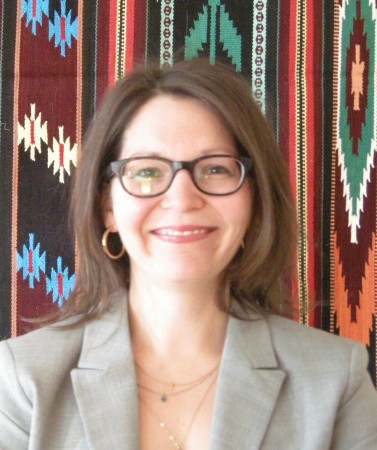About
MA Sociocultural Anthropology, University of Manitoba, 2006
BCom Latin American Studies, University of Alberta, 1999
Supervisor: Dr. Gastón Gordillo
Current Projects
Sara’s dissertation research is about transnational migration between a small town in Michoacán, Mexico and Anchorage, Alaska. Based on ethnographic fieldwork in both Alaska and Michoacán, she explores how generations of migrant-immigrants move between these two places, build a life for themselves and their families based on that movement, and produce a sense of place as a result. The stories of people who move between Alaska and Michoacán disrupt stereotypes about Alaska, tell a different kind of story about Mexican migrants and immigrants in the United States, and extend the influence of the US-Mexico border all the way to Alaska, encouraging us to look at North America as a whole in terms of links and ruptures between North and South in producing large-scale economic and cultural systems, as well as individual subjectivities and senses of belonging. This approach to movement and placemaking could be applied across the circumpolar north, to explore how flows of people moving between northern and southern spaces produce circumpolar locales and northern identities through connections with elsewheres. She is currently involved with building a network of emerging scholars working on global and urban issues in the circumpolar world.
Sara also has extensive experience as a qualitative researcher of public health topics such as the determinants of tuberculosis transmission on the Canadian prairies (with Dr. Richard Long at the University of Alberta), and addiction and mental health research including experiences of social control and coercion in addiction treatment, and binge drinking in the transition to adulthood (with Dr. Cam Wild at the University of Alberta).
Research
globalization and transnationality, spatial practice, mobility, belonging, and North America.
Publications
- Komarnisky, Sara V. (2012) Reconnecting Alaska: Mexican Movements and the Last Frontier. Journal of Ethnology and Folkloristics 6(1): 107-122.
- Komarnisky, Sara V. (2010) “¡Vamos al norte!” Transnationality and Security in Alaska, in Humanizing Security in the Arctic, Michelle Daveluy, Jenanne Ferguson, and Francis Levesque, eds. University of Alberta, Edmonton: Canadian Circumpolar Institute Press.
- Komarnisky, Sara V. (2009) Suitcases Full of Mole: Traveling foods and the connections between Mexico and Alaska. Alaska Journal of Anthropology 7(1): 41-56.
